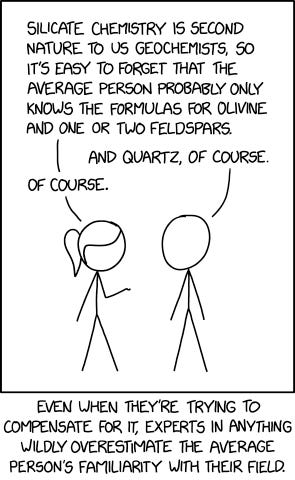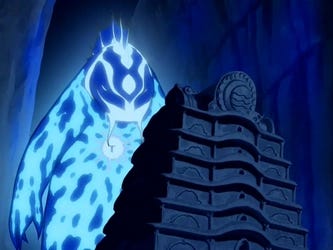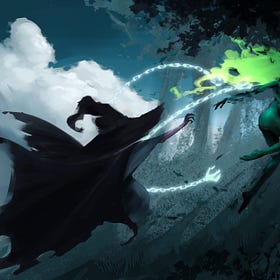Why Hard & Soft Magic Systems Matter
It’s not about worldbuilding. It’s about narrative.
Ever since 2007, when Brandon Sanderson published an essay detailing his “first law” of magic, the wider fantasy community has been enmeshed in discussion and debate over so-called “hard” and “soft” magic systems. (If you don’t know what I’m talking about, don’t worry, I’ll explain.)
Sanderson’s corpus of thought on this topic has been a massive boon to the fantasy genre, and continues to be. His terminology of hard and soft magic has given fantasy readers and authors the tools to diagnose problems of narrative, theorize better worldbuilding, and articulate relative strengths and weaknesses of stories in the genre.
However, there’s been something bugging me about the whole conversation, and I finally managed to figure out what it is:
People assume the discussion around hard/soft magic systems is about worldbuilding, when in actuality it’s about narrative structure.
In other words, a lot of us have made the mistake1 of focusing on how magic operates in our worlds instead of looking at how magic operates in our stories.
I hope by explaining the in’s and out’s of the two terms, I can help some of you avoid the same trap, and help you unlock these terms as the powerful diagnostic tools that they are.
If you like what you’re reading, let me know by liking, commenting, or sharing this piece. It genuinely helps me keep doing this.
Wait. What Do You Mean, “Hard & Soft Magic”?
You all seemed to like my low-res explainer on fantasy subgenres, so I hope you’ll bear with me while I pause to explain this en route to my larger point.
Besides, better to underestimate than overestimate average familiarity…

You can read Sanderson’s essay yourself, but suffice it to say that Sanderson was attempting to explain the various pitfalls of using magic as a part of a narrative.
In the process, he coined the two terms “hard magic” and “soft magic.”
Caveat Lector! : These terms are not to be confused with similar terms in the speculative-fiction discourse like “hard/soft science fiction.” We’re talking about magic systems. However, the principles of these terms can very easily be applied to non-fantasy features like technology or even combat, for reasons we’ll see below. All these terms are related, but are NOT the same.
Hard Magic is a system of magic with rules, limitations, costs, and powers that are explained to the reader. Like the rules of a game, a hard magic system has a predetermined set of things that can happen in relation to that magic. The fantastical story-beats exist within the bounds of those limits.
In Avatar: the Last Airbender, each “bender” can only bend one of the four elements of fire, water, earth, and air, except the Avatar who can bend all of them. Those are the rules and they are explained right away in the opening voiceover. That’s hard magic.
Other examples include Fullmetal Alchemist, The Name of the Wind, and pretty much everything written by—you’ll never see this coming—Brandon Sanderson.
In these settings, magic exists a bit like a scientific discipline. People learn and test the limits. There’s a predictability to someone’s powers. You’re much more likely to find in-world mechanisms to explicitly teach people how to use magic, like schools, ranked bureaucracies, or magic fellowships with formalized apprenticeships.
Soft Magic, on the other hand, is a magic system that doesn’t even look like a system at all. It’s mystical, amorphous, wondrous, unknowable, and most of all unexplained. Tolkien sits in this camp, along with Martin’s Game of Thrones, the magic of Tad Williams’s Osten Ard, and lots of other “classic fantasy.”
Soft magic systems are not predictable, the rules are never fully established, and theoretically anything could happen. The Potion does The Thing because that’s how the Wizard made it. Gandalf came back from the dead because c’mon it’s Gandalf. The magic mirror works like FaceTime because of the ancient spell of Authorias Handwavium. None of these are explained. They don’t need to be explained.
It’s a Spectrum, Not a Dichotomy
Hard and soft magic systems exist on what I call a “spectrum of magical rigidity.”2 This is not a clear-line dichotomy like high/low fantasy.
That’s the first thing people get wrong. I’ve seen people bicker about whether or not The Wheel of Time has hard or soft magic. There’s points on both sides: it has a lot of mechanics and Jordan does a lot of explaining over his fourteen books, but there’s no limit to what magic can or cannot do. But the debate is pointless. It’s not supposed to be one or the other; it’s a spectrum, and Jordan’s magic is harder than others, but softer than some.
You could put a percentage on it if you want, or rank different systems on the scale, but the answer to the question is just about always going to be “both/and.”
Even Tolkien’s archetypical “soft magic” system does a lot of explaining about the One Ring. Sure, Tolkien never explains exactly how the Ring bends the bearer to Sauron’s will, but there are still lots of clear rules: the Ring can only be destroyed in Mt. Doom, it will draw the Nazgûl, it will tempt everyone to its use, it will turn you invisible but not to everyone, its capacity for corruption is contingent on the preexisting power of the corrupted being, etc. These rules and limitations on magic actually drive the main narrative conflict of the story. (Note that! we’ll come back to it.)
But overall Tolkien’s magic is very soft. In Children of Hûrin, Glaurung the Dragon can wipe Niënor’s memory because that’s just the sort of thing Dragons do, don’t’cha know? Soft magic for the win.
Harry Potter is another worthwhile example, and one Sanderson himself points out. It is both hard and soft. He writes:
Each of [the Harry Potter] books outlines various rules, laws, and ideas for the magic of the world. And, in that given book, those laws are rarely violated, and often they are important to the workings of the book’s climax. However, if you look at the setting as a whole, you don’t really ever understand the capabilities of magic. [...]
In specifics, [Rowling’s] magic is hard. In the big picture, her magic is soft.
As I developed my own world, I wound up unintentionally developing a system very similar to Rowling’s, in that I have magic spells that do very specific things and which cannot easily bend outside of their own paradigms. Each spell has rules and limitations. However, the reasoning behind those specific rule-sets and the theoretical limits of magic are very vague by design.
(If you want a sense of what this looks like in practice, I feature magic in this hopeful story and in this not-so-hopeful one).
Sanderson’s First Law
With all that explaining out of the way, let’s look at why this matters.
As I said, people often learn about all this and then get caught up in worldbuilding. They try to define their magic systems. They follow Sanderson’s advice and add “costs” to doing magic. They try to figure out all the hard limits of magic in their world and define the philosophical underpinnings of where the fuzzier lines will be…
None of that is bad. It’s not, I promise. I did that. I’m all for it. Figure out your setting. Worldbuild. Go have fun.
… but it is manifestly not the point of the terminology.
The distinction between hard and soft magic systems is not about worldbuilding or setting; it is about narrative structure.
Sanderson did not coin these terms—and they did not rise to such prominence—because he wanted to give you tools to better fill out your self-made world-wiki. I say that even though these are helpful tools for building a world.
He wrote all this to help you tell stories.
The title of his essay is not “Hard and Soft Magic Systems: A Paradigm For Understanding Fantasy.” The title of the essay is: “Sanderson’s First Law.” And that first law reads:
An author’s ability to solve conflict with magic is directly proportional to how well the reader understands said magic.
The entire point of defining magic systems is to make sure we, as authors, are using magic effectively within our narratives.
So how do we do that?
It’s All About Exposition
The conversation about magic systems often centers around “rules”, but it’s not the rules that categorize fiction within the hard-soft spectrum.
Instead, the categorization is based purely on how much the magic system is explained to the audience. The more magic is exposited3, the “harder” it is. The more it’s left unexplained, the “softer” it is.
And this isn’t about character knowledge, either. Gandalf knows how his magic works. He knows specific spells, he knows what he can do, and—as he tells the rest of the Fellowship when the balrog appears in Moria—he is terrifyingly aware of the limits of his power. However, none of those specifics are explained to the audience. The fight between balrog and wizard is left entirely nebulous; we readers only know that is it scary, that it is happening, and that Gandalf might not make it out alive. Because the readers are in the dark, it’s soft magic.
Why is the metric of categorization exposition, rather than rigidity of use as the terms hard/soft seem to imply?
Consider Sanderson’s first law: “an author’s ability to solve conflict with magic is directly proportional to how well the reader understands said magic.” At its core, this isn’t about magic at all. It’s about the relationship between the author, the reader, and suspension of disbelief.
Sanderson is saying that we shouldn’t use magic as a deus ex machina to bail our characters out of trouble. That would bounce people out of the story and destroy any sense of stakes. If the price of magic is zero, and magic solves anything, then failure becomes impossible. If the heroes can never fail, why bother rooting for them?4 Yet not all magic use is an immersion-breaking, narrative-deflating deus ex machina.
The difference is whether or not the magic is explained to the audience ahead of time.
Imagine we’re at the climax of a story. The plucky heroes are in their last, desperate hour. They are fighting the Dark Lord, who is only moments from his greatest triumph which will ruin the world. Just as all hope seems lost … what happens?
What would it feel like if the Dark Lord was suddenly swept up into a magical fireball that absolutely no one—including the audience—saw coming? It would feel cheap and unearned. It would sap all the tension and triumph out of the moment. Disbelief broken! Deus ex machina! This only makes sense in a world where the hero is played by Will Ferrell.
But what if that fireball is instead created by a hero who has been trying for ages to learn to how to do exactly that? We’ve watched him train and try and fail to do it. We know that fireballs are a thing that happen. We know exactly why the hero hasn’t been able to do it—maybe its a mental or emotional problem indicative of the ways the hero needs to grow. So, when the fireball envelopes the Dark Lord and we see the hero standing at its origin, its a delightful surprise full of triumph and emotion, connected to character growth.
Hard magic—that is, well-explained and fully exposited magic—is really just authors visibly giving magical tools and abilities to their characters in a predictable and understandable way. The more central and important the magic is, the more exposition it needs, the harder it generally is.
That’s why the magical artifact at the center of Tolkien’s story—the One Ring—is the “hardest” part of his magic system. Its rules drive the central conflict, so it is important to flesh out how it works and how it doesn’t!
Even within soft magic systems (or the softer, fuzzier areas of hard magic systems), it is incumbent on the author to show that such things are theoretically possible prior to magic having a major impact on the plot.
In Avatar: The Last Airbender, it is a completely new “feature” of magic when Aang fuses himself with the Ocean Spirit in order to save the Northern Water Tribe; its a new power that isn’t explained beforehand and is never used again. But it works—emphatically—because Avatar Aang already has a pre-exposited role as a bridge between the mortal world and the spirit world, and the show never really explains the limits of the so-called Avatar State.
Even though the water-kaiju is new, unique, and bails the characters out of trouble, it still works because the audience has been given the framework to understand how and why this could happen.
The whole sequence is very “soft,” because its not explained precisely how or why this works. But if the show had explained all that, it would be a very “hard” magic system even if the events remained unchanged. The difference is not in the setting. The difference is in the audience’s understanding of that setting.
The one caveat here is that there could be a very rigid magic system that remains unseen by audience and characters alike. This is the entire arc of Sanderson’s Stormlight Archives. Initially the spiritual creatures, “spren,” are just around for reasons unexplained and it’s all very nebulous and soft. As time goes on though, characters gain powers through some initially-unexplained link with these spren and by the end of the first book they’re explicitly experimenting and learning about magic alongside the audience. The magic rules didn’t change—it was always rules-based—but the exposition is very gradual so it often seems soft.
That said, Sanderson also goes to great lengths to explain some of the rules of the magic system through the eyes of one high-powered magic user in the prologue to the Stormlight Archives. That tells the audience at the beginning that there are rigid, intelligible, predictable rules of magic, even if you won’t understand it for a while. Therefore: hard magic.
It’s Just Good Storytelling!
We can compare magic to any other storytelling device that any author in any genre might use to solve problems or move the plot forward.
A generalized version of Sanderson’s first law—exposit, then use—is germane to any narrative. A storyteller’s ability to introduce rules and problems, to solve problems, to show the characters as competent or incompetent … it all depends on the audience’s understanding of the rules and possibilities of the story-world.
In superhero stories, kung-fu movies, or shoot-em-up action flicks, the fight at the end will be more impactful when the specific moves are shown and explained throughout the training montage. The storyteller must exposit the tools before the characters can use them in satisfying ways.
If you want to tell a story of secret wizard societies fighting each other with magic spells then yes, you need a hard magic system or else your action scenes will make no sense whatsoever.
Its not that magic is classified as “hard” because it has lots of rules and limits, it’s that rule-based magic will need exposition or else the story falls apart. And by nature of that exposition, it’s a hard magic system.
Narrative. Not worldbuilding.
The “spectrum of magical rigidity” is, at its core, just basic storytelling principles applied to the realm of fantastical magic. It’s just good storytelling!
Expanding the Scope Outside Fantasy
This also is why the terminology can spill over into non-fantasy genres in very helpful ways.
For a “hard science fiction” story like The Martian by Andy Weir, the story depends on a “hard magic system” known as advanced physics. Christopher Nolan’s Interstellar depends on a “hard magic system” called the theory of relativity and the complex relationship between time and gravity. Sanderson himself cited Isaac Asimov’s I, Robot stories as an example of hard magic, even as Asimov himself probably would have bristled at the implication that he was writing “fantasy.”
Without explaining physics, or the theory of relativity, or the three laws of robotics, the stories are incomprehensible.
On the other end, I would put Dune deeply into the soft magic end of the spectrum. Sure, Paul’s powers of Voice-Command and foresight aren’t supernatural; he’s just that intelligent. But his powers—along with the super-human powers of mentats, and interstellar travel generally—are dependent on a psychedelic substance (with no real-world analog) which is never fully explained. Nor is it ever questioned. Spice is soft magic, and let it flow!
Herbert could have “hardened” it by explaining the chemicals in the brain or something, but it wouldn’t’ve have added to the story so he wisely did not.

You can also use the frameworks of hard and soft to unpack stories and settings that have nothing to do with any speculative fiction!
I’m a big fan of Bernard Cornwell’s historical fiction series, The Saxon Tales.5 The books’ plots rely heavily on the combat meta of Viking-age Britain. Cornwell spends a lot of ink expositing the nuances of shield-wall battle tactics, the strategic superiority of Viking longships, the advantages of different types of hand-weapons, and the effects that small geographic features like hills or ditches can have upon the course of battle.
Why bother? Because these things matter to the plot and characters.
In the combat system presented in the books, someone slipping in the mud and falling down jeopardizes a battle line, changing the war and altering the course of nations. Little actions become a big deal. Without all that exposition, a reader might not see such small things as high stakes.
Combat in those books works like a hard magic system. The reader must understand all the rules and limits and powers in order to grasp the story.
In fact, that’s how I got onto this topic in the first place. I was speaking with a friend of mine—who is graciously alpha-reading my WIP novel—about narrative tone. He directly compared warfare in my own novel to a “hard magic system.” It was sufficiently historically rooted, he said, that it has its own rules and limits which add drama to the story; the audience has to understand these things and see how they differ from Hollywood-driven preconceptions about pre-modern warfare6; but those differences help the world feel unique, alive, and very dangerous.
It was all very nice of my friend to say, but who cares? I had already tuned it out because something in the back of my mind was going:
“—hey wait a minute he’s onto something here—go and write about this because really most people don’t talk about magic systems that way even though it is about exposition more than it is about setting and my gosh IS my combat really just a hard magic system?—I mean it makes sense, doesn’t it?—but WHY does it make sense and where the heck is my keyboard I gotta get these thoughts out!”
Anyway…
In future posts, I hope to explore both hard and soft magic systems in more detail. [Post-publication edit: I have! With Ian Dunmore!]
Just because they flow from simple storytelling principles does not mean that there aren’t distinct advantages and disadvantages to each.
We’ll explore those eventually. Right now! Click the link below!
Thanks for reading. If you like what you’ve read here and want me to keep making stuff like this, you can help me do that by liking, commenting, or sharing this piece.
If you really liked this and want to support my work directly, consider becoming a Forgemaster by taking out a paid subscription. I offer my Forgemasters exclusive short stories, behind-the-scenes posts, and a direct voice in my creative process. Join below 👇
Want more? Read the post below. You can also see all my writing by visiting this page.
✹ ✹ ✹
In Defense of Hard Magic Systems
Magic System Deep-Dive Series: Part 1 of 3. Starts here. Co-written with Ian Dunmore.
✹ ✹ ✹
or are making the mistake, or are about to make the mistake
To be clear, this term is mine, but the idea of the spectrum is Sanderson’s.
Verb, from the noun, “exposition.” Etymology: me.
*cough cough* Manchester City *cough*
The Saxon Tales has a different name in the UK, by the way. But on both sides of the Atlantic, the first book is called The Last Kingdom, which gave its name to its Netflix adaptation (which was poor, as one would expect).
like fire arrows and trees always being on fire and pots of oil exploding everywhere in fireballs and everything being lit by blazing fire-torches and also fire generally








Most informative! Your explanations are clear and extremely well-supported by examples.
I've not read Sanderson on this subject, but I've heard a lot of debate on it over the years. I used to argue with one of my editors about magic because he had the presupposition that "magic always comes at a cost." But there are other ways to limit magic. In my books, the consequences tend to be more practical than arcane--the difficulty of living a normal life, for example. There's also a considerable risk factor, even if one is skillful, that the magic might somehow go wrong. And the more potent one's magic is, the more one tends to become a target for more powerful supernatural forces.
Anyway, I imagine the discussion of how to implement believable and easily understandable restrictions into magic will always be a popular subject. It is certainly critical to willing suspension of disbelief.
Your elucidation on Sanderson's "laws" as actually referring to narrative and not worldbuilding is really good, but the conversation I'd like to have is the irreparable damage Sanderson's "laws" have had in terms of restricting and muddling magic aesthetics, presentation, and concept. The far-reaching notion, partly from wide misreading, and partly from poor communication on the author's behalf, that hard=science and soft=magic, that there must be cost, numbers, and so on. His "laws" may be good guides for narrative use, but as worldbuilding advice for those who simply enjoy the art of fleshing out a setting, I think they're atrocious.
I personally like to measure things by a Magic/Science metric to better describe authorial intent, presentation, and aesthetics. Magic, after all, is a word with a meaning.